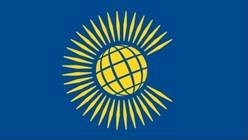“It is already becoming clear that a chapter which had a Western beginning will have to have an Indian ending if it is not to end in the self-destruction of the human race.”
Dr. Arnold Toynbee 1889-1975
The population of India comprises 52% of that of our great ‘Family of Nations’ which is the Commonwealth. Perhaps British historian Arnold Toynbee recognised the same essential feature in the Indian sub-continent as William Gladstone: that in the final resort it is only mutual love that can bind people and nations together. The Commonwealth heads of government have displayed that goodwill in abundance over the past week and, for the United Kingdom in the throes of Brexit, it could have considerable economic benefits as well.
 The successful Commonwealth heads of government meeting, together with the smooth and diplomatic transfer of Commonwealth leadership to Prince Charles, may indicate a major change in the significance of this extraordinary organisation. Until now it has been seen as little more than a relic of the British Empire: however there may now be a new focus on its economic significance as the United Kingdom leaves the European Union and seeks a new set of free trade arrangements.
The successful Commonwealth heads of government meeting, together with the smooth and diplomatic transfer of Commonwealth leadership to Prince Charles, may indicate a major change in the significance of this extraordinary organisation. Until now it has been seen as little more than a relic of the British Empire: however there may now be a new focus on its economic significance as the United Kingdom leaves the European Union and seeks a new set of free trade arrangements.
Most of the media attention last week was on the pomp and circumstance of occasion and the transfer of leadership, but you can be sure that Liam Fox’s Department for International Trade was working hard in the background.
The statistics for the Commonwealth compared to the other great economic powers are impressive:
|
Economic Powers |
Population |
GDP (US $) |
Land Area |
Countries |
|
China |
1.4 billion |
$10.4 trillion |
9.6 million sq km |
1 |
|
Commonwealth |
2.4 billion |
$10.4 trillion |
31.5 million sq km |
53 |
|
Europe (ex UK) |
508 million |
$14.1 trillion |
9.9 million sq km |
27 |
|
Russia |
147 million |
$1.3 trillion |
17.1 million sq km |
1 |
|
United States |
325 million |
$17.4 trillion |
9.8 million sq km |
1 |
Of course the presence of India is hugely significant, with a population of 1.26 billion alone (and a much younger profile than China, Europe or the United States), and India is right at the heart of the Commonwealth in terms of both commitment and geography, and has a deep understanding of the need for mutual love between peoples to enable human flourishing.
So if Theresa May can build the Commonwealth into a truly international free trade network, with its values of ethics and fair trade refreshed for today’s world, it might provide an alternative in the face of calls for an EU customs union or US trade protection.
Ethics is of course high on everyone’s agenda as we move into a world dominated by technology.
The Facebook episode has shown just how timely the introduction of GDP (General Data Protection Regulation) is, and the news that China aims to be the world’s undisputed leader in Artificial Intelligence by 2030 should make us all ask where to find a set of ethical standards to guide the development of AI. For example, China’s national surveillance network comprises of over 170 million CCTV cameras and associated systems.
So we would do well to note the publication of the report from the House of Lords Select Committee on Artificial Intelligence last week. This sets out five core principles, which should guide its future development:
- Artificial Intelligence should be developed for the common good and benefit of humanity.
- Artificial Intelligence should operate on principles of intelligibility and fairness.
- Artificial Intelligence should not be used to diminish the data rights or privacy of individuals, families or communities.
- All citizens have the right to be educated to enable them to flourish mentally, emotionally and economically alongside Artificial Intelligence.
- The autonomous power to hurt, destroy or deceive human beings should never be vested in Artificial Intelligence.
For more details visit the Bishop of Oxford’s blog “The Only Way is Ethics”: he’s been a member of that House of Lords Select Committee. See also our commentary on 19th February on AI.
Now - carry these core principles back into those great trading blocs and consider how they might respond. In the case of both China and the United States, it may be somewhat of an uphill challenge. In the European Union, they may well embody similar principles in regulation but their record for implementation of Directives is not good: many countries have yet to ratify the MiFID 2 Investment Directive which the United Kingdom implemented in January this year.
But the Commonwealth is based on a strong foundation of ethics and values, and with Prince Charles at the helm we can be confident of that being its foundation as we go forward. And in the final analysis, ethics and values always win out over sheer opportunism.
So we should hail a couple of good developments for both the United Kingdom and the world last week.
Gavin Oldham
Share Radio

